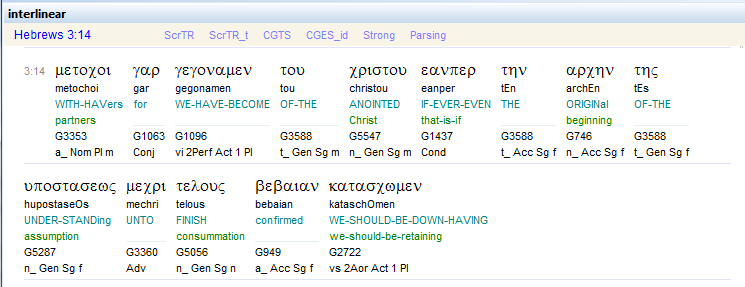Spiritual Israelite
Well-Known Member
I know I said we could just agree to disagree on this, but I think one thing that needs to be discussed that we didn't touch on before is what the word "abide" means. So, how do you define the word "abide"? It means to remain. That's why in some translations it uses the word "remain" instead of "abide" and it has Jesus talking about the need to remain in Him. But, how can someone remain in Christ if they are not in Christ in the first place?You continue to include in your interpretation that "a man abide not in me" actually means, "a man stops abiding in me", and use that instead of the actual statement given.
I have too much love for the truth to do that. I must remain with "if a man not abide in me", which does not address whether or not such a man previously did.
Given the fact that this point is not specifically addressed by this passage, it is then an ambiguous passage, that is, could be interpretted in more than one way, or applied in more than one way. I think we are interpretting the passage the same, and are applying it differently.
That is, I apply it to those who never did, while you apply it to those who do, and may cease to do so.
Parallel passages and contextually relevant passages often supply the needed information by which we can determine which is actually meant.
I'm aware of a number of passages that would be false on their face if one who is regenerated ceases to be so, ceasing to remain in Christ. And again, I'm constrained by the truth, I cannot simply prefer one interpretation over another, I require the Scriptures to show the meaning,
And in every case, I find harmony throughout, as the regenerate are never lost, but remain with Christ.
Much love!
John 15:1 I am the true vine, and my Father is the husbandman. 2 Every branch in me that beareth not fruit he taketh away: and every branch that beareth fruit, he purgeth it, that it may bring forth more fruit. 3 Now ye are clean through the word which I have spoken unto you. 4 Abide in me, and I in you. As the branch cannot bear fruit of itself, except it abide in the vine; no more can ye, except ye abide in me. 5 I am the vine, ye are the branches: He that abideth in me, and I in him, the same bringeth forth much fruit: for without me ye can do nothing. 6 If a man abide not in me, he is cast forth as a branch, and is withered; and men gather them, and cast them into the fire, and they are burned.
Would you agree that in verse 5, Jesus is referring back to verse 2 where He said "and every branch that beareth fruit, he purgeth it, that it may bring forth more fruit"? If so, why would you not also think that in verse 6 He is referring back to verse 2 where He said "Every branch in me that beareth not fruit he taketh away"?
I don't think you are recognizing that, in verses 5 and 6, Jesus reiterated and expanded on what He said in verses 1 to 4. I color coded the verses to show that. Match up the colors in verses 5-6 to the same colors in verses 1-4 and you should see that.



